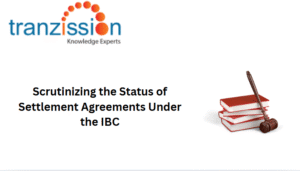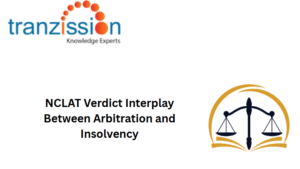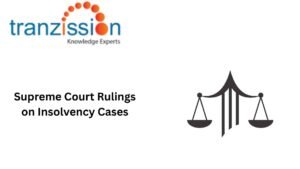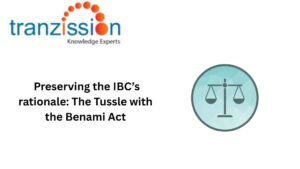
Resolving the Conundrum Surrounding Applicability of Moratorium
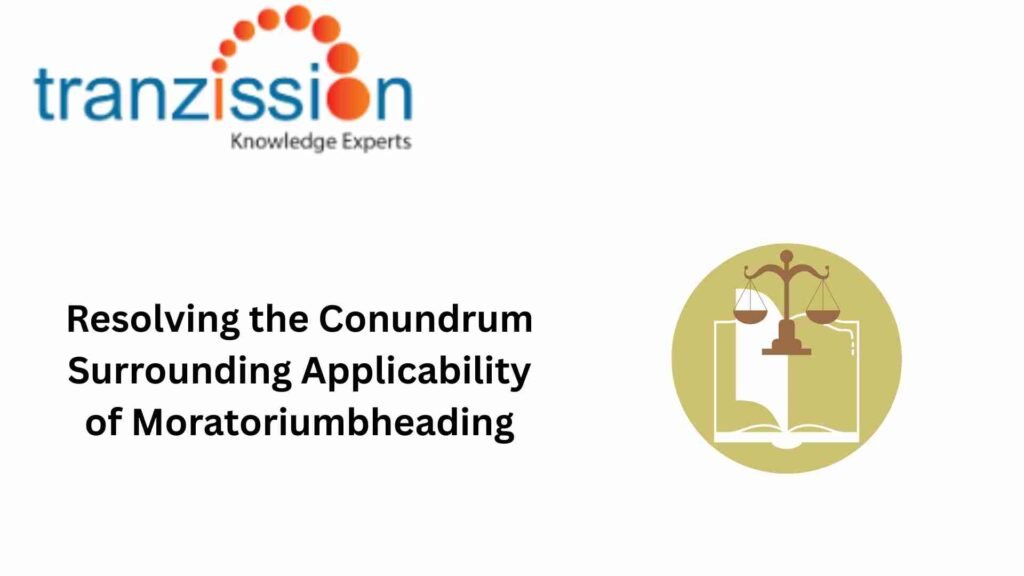
Table of Contents
The primary objective of the Insolvency and Bankruptcy Code, 2016 (“the IBC”) is to resolve the financial issues of the corporate debtor in a timely manner so as to maximise the value of its assets. To do so, once the insolvency process is initiated under the IBC, a “ Applicability of Moratorium” is declared under section 14. This is a period where certain actions are prohibited and no legal proceedings to recover money, enforce any security interest, sale or transfer of assets or termination of essential contracts that could be initiated or continuation against a corporate debtor. This article explains the judicial scrutiny of section 14(1)(a) of the IBC.
Understanding Section 14(1)(a) of the IBC
Section 14(1)(a) includes a prohibition on the institution or continuation of suits or proceedings against the corporate debtor, including execution of judgments, decrees, or orders, and emphasis on the inclusion of proceedings in any court of law, tribunal, arbitration panel, or other authority. This provision provides clarification that the moratorium applies to actions against the corporate debtor, not actions initiated by the corporate debtor.
Judicial Interpretations and Case Analysis
In Malayan Banking Berhad v. Ushdev International Ltd. the Supreme Court addressed the interpretation of section 14(1), specifically concerning the moratorium imposed during the corporate insolvency resolution process (CIRP). The main issue of this case was whether suits filed by the corporate debtor are covered under the moratorium. The court clarified that the moratorium generally applies to proceedings against the corporate debtor, not necessarily to proceedings filed by the corporate debtor. This means that the moratorium does not automatically stay all proceedings initiated by the corporate debtor, even if related to its insolvency. The decision of the case clarifies that the corporate debtor retains the right to initiate or continue legal proceedings during CIRP. In the case of SREI Infrastructure Finance Ltd. v. Sterling SEZ and Infrastructure Ltd., the National Company Law Tribunal (NCLT) Mumbai ruled that proceedings under the Prevention of Money Laundering Act (PMLA) are civil and, therefore, subject to the moratorium imposed by Section 14. The tribunal held that an adjudicating authority under PMLA cannot attach the properties of a corporate debtor undergoing the insolvency resolution process, as such attachment would be a nullity under law. This decision, thus, ensures the preservation of the corporate debtor’s assets for effective resolution.
Scope and Limitations of the Applicability of Moratorium
Proceedings Covered:
Section 14 covers civil suits, arbitration proceedings, and execution of judgments against the corporate debtor and regulatory actions that may impact the assets of the corporate debtor.
Proceedings Not Covered:
Criminal proceedings, including those under Section 138 of the Negotiable Instruments Act and actions against personal guarantors of the corporate debtor and Writ petitions under Articles 32 and 226 of the Constitution of India, are allowed during moratorium under section 14.
Read more : What is Form G in IBC – Invitation for Expression of Interest
Practical Implications for Insolvency Professionals
This period can also hinder the decisions and actions of insolvency professionals:
Insolvency professionals need to ensure that no proceedings are initiated or continued against the corporate debtor’s assets during CIRP. Their duties include monitoring for any violations of the moratorium and taking appropriate legal action.
Insolvency professionals must implement strategic methods to balance the interests of all stakeholders. This includes informing creditors, regulators, and other stakeholders about the Applicability of Moratorium and addressing any concerns related to the continuation or initiation of proceedings during CIRP.
Conclusion : Applicability of Moratorium
The moratorium safeguards the corporate debtors by preventing creditors from initiating or continuing legal actions that could lead to their dissipation or transfer. This allows the resolution professional to assess the company’s financial situation and develop a resolution plan without the distraction of creditors pursuing their claims individually. Hence, insolvency professionals to be vigilant in monitoring and enforcing the moratorium provisions. It enables the corporate debtor to concentrate on restructuring and developing a resolution plan that maximises the value of its assets. This helps to prevent the company from being forced into liquidation, which could result in a lower recovery for creditors.

